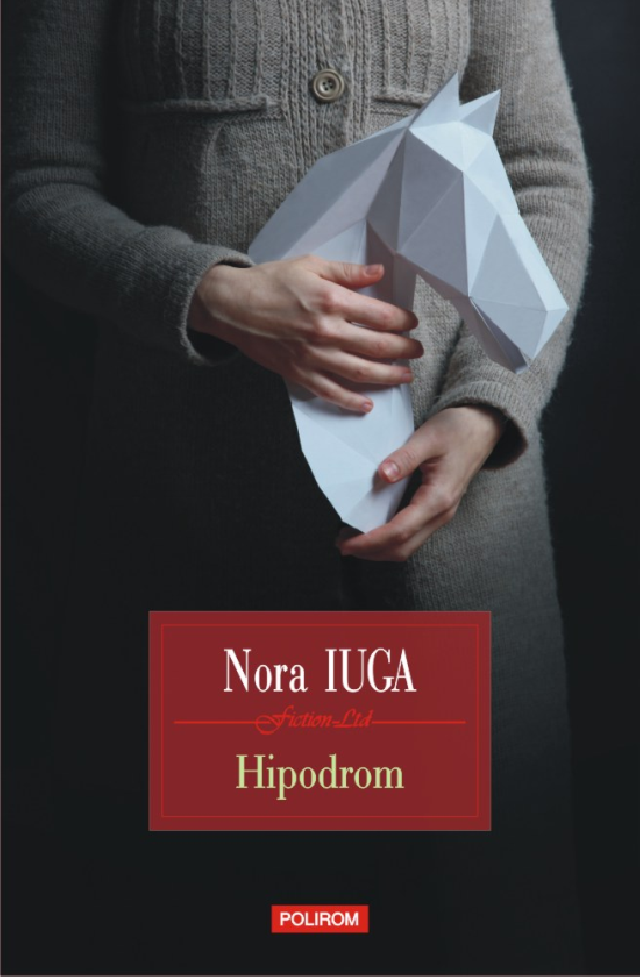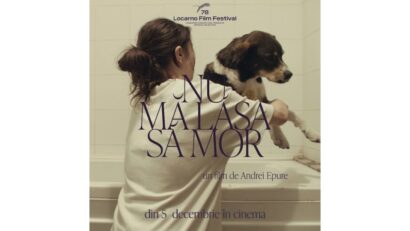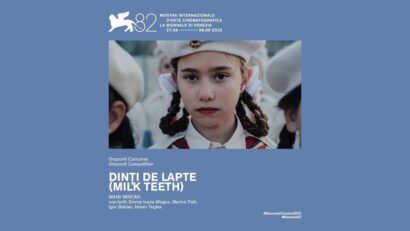Romanian well-established writers’ recent accomplishments
Award-winning writer Nora Iuga, a special guest on RRI

Corina Sabău, 10.09.2022, 14:00
Nora Iuga, one of the most critically-acclaimed living writers, is the author of Hippodrome, a novel brought out by the Polirom Publishers in Bucharest. Having got her novel published, Nora Iuga said she was having a rest after that, writing poetry.
Poet, prose writer and translator Nora Iuga was born on January 4, 1931. She is a member of the PEN Club and a member of Romanian Writers’ Union. Nora Iuga has got more than 20 volumes published so far, poetry and prose. Here are some of the titles of her works: I’m not the one to blame (1968), The Captivity of the Circle (1970), Opinions on Pain (1980), Heart as a Boxer’s Punch (1982, 2000), The Sky Square (1986), The Night Typist (1996, 2010), The Dummies’ hospital (1998, 2010), The Hump-backed Bus (2001, 2010), Party in Montrouge (2012), The Wet Dog is a willow tree (2013), Hear the brackets crying (2016), Leopold Bloom’s Soap Bar (1993), The Sexagenarian and the Young Man (2000), Harald and the Blue Moon (2014).
Nora Iuga’s prose and poetry works have been translated into several languages. In 2007, Nora Iuga was the recipient of the Friedrich-Gundolf Prize, awarded by Deutsche Akademie für Sprache und Dichtung, (The German Academy for Language and Literature). In 2015, at the recommendation of the President of Germany, Joachim Gauck, Nora Iuga was awarded the Cross of Merit Order in the Rank of Knight. In 2017, Romanian president Klaus Iohannis bestowed the National Order of Merit in the Rank of Commander on Nora Iuga.
We had Nora Iuga as a guest on RRI. We invited the distinguished senior writer to speak about her most recent novel, Hippodrome. It is a book with an obvious autobiographical character, dedicated to the city she was brought up in: Sibiu. It is There that she met the Ursuline nuns, it is There that she saw Jovis, the white horse, in Schuster’s window case. The horse still lingers in her memory. It is also there that she taught German during the communist regime, becoming one of the pupils’ favorite teachers.
Nora Iuga:
The project of this book dates a while back. It should be 15 years now, I guess, since I have been thinking I owe this city. But it’s not that I owe it like it’s a liability, like it’s a sum of money I borrowed and I need to return. I insist, all throughout the book, on that particular name, Hermannstadt, as it’s that city I have been most attached to, Hermannstadt, and less to the Sibiu of today. As it was there that for the first time I felt the thrill of love, when I was ten, without realizing what that mix of feelings meant, I just couldn’t explain the feeling I had on a winter night, when I was on the main street running to the Romans’ Emperor, Sibiu’s most important Saxon hotel. It was there that my daddy had his live concerts, he was a violinist and head of the orchestra, and I was hurrying to give him the little pine three cake he had to rosin his bow hair with. This city also occasioned encounters with people whose influence on my destiny was crucial. Unfortunately, quite a few of them have for long not been among us. No more nuns, my nuns of the Ursuline Monastery, to whom I owe half of my being. Whenever, in my books, I bring up Nora A and Nora B, I am not doing that randomly, I am made of two halves that are at loggerheads with one another, but that’s not unusual. I am dead positive that in every human being, there are two antagonistic and almost incompatible characters who quarrel all the time. And if Nora A is the frantically larksome one, Nora B is the wiser one and she is always lecturing Nora A.
Here is Nora Iuga once again, this time speaking about how she constructed Hippodrome, the novel that captured a life lived under three dictatorships, two of them instated by Carol II and Ion Antonescu, followed by the third dictatorship, the communist one.
There are two distinct categories of writers, those who construct, while the other ones let themselves lead by that uncontrolled inner flow, and I certainly belong to the second category. That uncontrolled inner flow can be quite like memories, since we cannot control the memories coming upon us. And so vivid are some of those memories that they almost frighten us, it is thanks to our memories that we can relive certain events as they really happened, well, almost. It seems to me memories can be compared with the dreams that can take the shape of the things that happened long before, yet in a slightly changed manner. Notwithstanding, we can identify those events that happened a long time ago, we know that a long, long time ago, we might have lived that. When old age comes, when you find yourself all alone, the greatest joy is to be able to go deeper into your inner self, but that does not mean you must relate to your biographical past.
Just as it can be also seen in the book, I lived under three dictatorships and I can say I am still very fond of the time of monarchy during which I lived when I was a child and for which I have vivid memories that still linger in my mind, I cannot imagine a time more beautiful than that. I have always lived under the sign of contradictions, but as a child I did not realize it was unjust to walk barefoot just as I saw hucksters walking. Funny thing is, when I look back at that, right now, I seem to watch a movie which is full of poetry. What I’m trying to say is that I just cannot be too hard on everybody, I believe each and every one of us has very deep roots in childhood, and those roots cannot be torn up by anyone. Things that today can be rectifiable, for me they were a source of joy.
(EN)






























